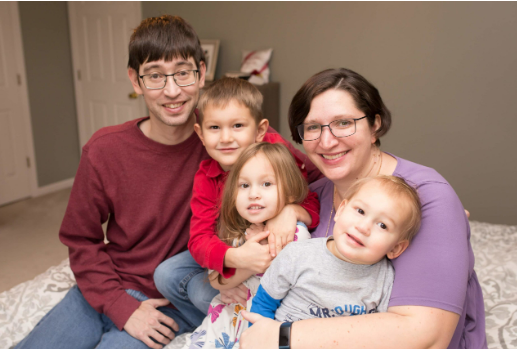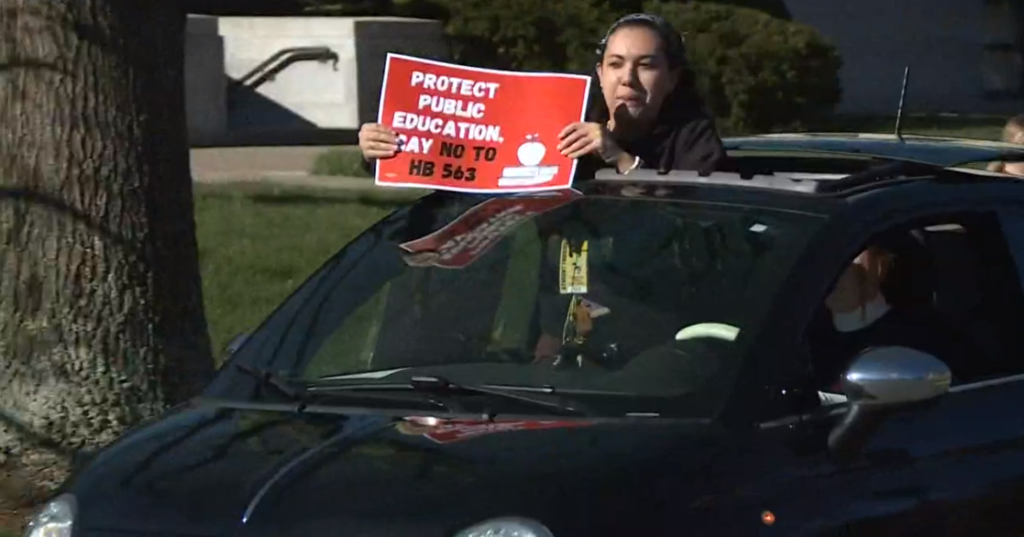
A West Virginia Supreme Court ruling will allow the state’s Hope Scholarship to move forward will make it possible for families like Katie Switzer’s to choose the best education options for their children.
Editor's note: Post author Amanda Kieffer is the communications director for the Cardinal Institute For West Virginia Policy. The institute supported the establishment of the state's Hope Scholarship education savings account program.
Parents across the Mountain State shouted for joy as news of the West Virginia Supreme Court’s ruling in favor of the Hope Scholarship was announced Oct. 6, —just two days after the State Supreme Court heard oral arguments in the case.
The battle for education freedom in West Virginia has been long and hard-fought. West Virginia went from virtually no education freedom in early 2019 to having charter schools, open enrollment, learning pods, micro-schools, and the Hope Scholarship (a near universal education savings account) now available to families in 2022. The change is dramatic and brings new opportunity for children in a state that has historically underserved its children in the education system and has limited opportunities for economic advancement in adulthood.
The Hope Scholarship has been aptly named—representing hope and new opportunity for many families who have struggled to meet the educational needs of their children.
To continue reading, go here.

Kentucky became the 28th state to create a private school choice scholarship program despite protests mounted by teacher unions, whose members rallied Monday at the state Capitol.
The 2021 legislative session began with dozens of school choice bills filed nationwide amidst a global pandemic and recalcitrant teacher unions that continue to fight school openings.
Twenty-six states, plus Washington, D.C., and Puerto Rico, boasted private school choice scholarship programs at the start of the year. Now there are 28.
West Virginia became the 27thth state with a private school choice program when Gov. Jim Justice signed the bill into law Monday. Just hours later, Kentucky became the 28th after its General Assembly overrode a veto by Gov. Andy Beshear.
West Virginia’s program creates an education savings account program for students wishing to attend private schools or participate in home education. The program has no cap and offers scholarships worth $4,600.
Students can use the funds to pay for private school tuition, private tutoring, after school programs and more.
Unlike other education savings account programs which are limited to low-income students or students with special needs, West Virginia’s program is more universal.
“Arguably, you could say, even at launch, it’s the most expansive,” University of Arkansas professor Patrick Wolf said in an interview with the Charleston Gazette-Mail.
Kentucky’s program creates a $25 million tax credit scholarship program to pay for private school tuition for low-income students living in one of the state’s three largest school districts. Low-income students in all other counties with 90,000 or more residents would be eligible to receive funds to pay for private tutoring or other educational expenses.
House Bill 563, the bill creating the program, also allows students to switch to public schools in other school districts.
Beshear vetoed the bill last week, claiming the program “will harm public schools,” while blaming the Republican controlled legislature for “fail[ing] to invest in Kentucky’s public schools.”
Kentucky’s House of Representatives on Monday voted 51-42, and the Senate voted 23-14, to override the governor’s veto.
John Schilling, president of the American Federation for Children, hailed Kentucky lawmakers for the override.
“Today lawmakers in Kentucky did the right thing by rejecting a veto by their governor that would have denied thousands of children in the Bluegrass State access to an educational environment that best serves their needs,” Schilling said. “We applaud members of the Kentucky Legislature who stood up and fought on behalf of children and families.”
Kentucky spends $11,404 per pupil according to U.S. Department of Education data. In total, the $25 million scholarship program is a rounding error compared to the state’s $8 billion K-12 education budget.
The governor also claimed the scholarship program violates the state’s “Blaine amendment” prohibiting instruction at sectarian schools, despite a 2020 U.S. Supreme Court ruling to the contrary.